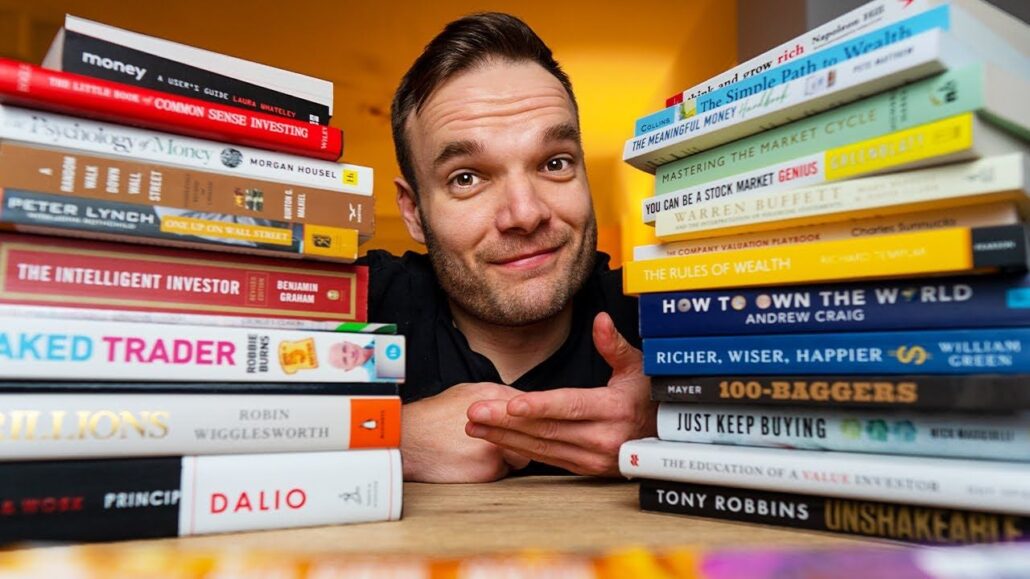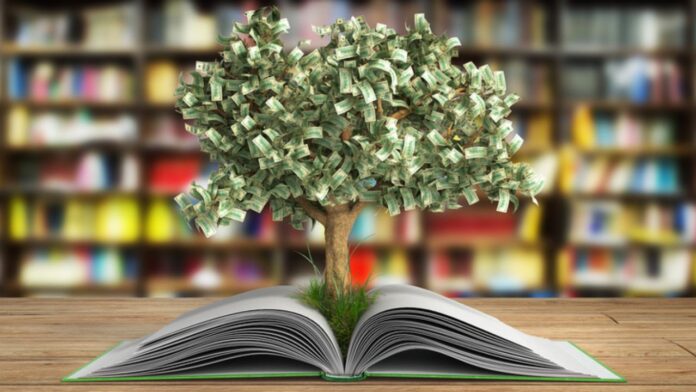Books have always held a special place in my heart. They are not just objects with pages and ink; they hold immense value beyond their physical form. In this digital age where information is at our fingertips, the question arises: is buying books still a good investment for your mind and wallet?
In this article, we will explore the various benefits of reading books, their impact on personal development, their value as a source of entertainment and knowledge, and whether they are a wise financial investment.
The Benefits of Reading Books
Reading books offers a multitude of benefits that go far beyond mere entertainment. When you immerse yourself in a book, you enter a world of imagination, expanding your creativity and critical thinking skills.
Books provide an escape from the stresses of everyday life, transporting you to different times, places, and perspectives. They allow you to explore new ideas, cultures, and experiences, broadening your horizons and fostering empathy.
Moreover, reading books enhances your cognitive abilities. It improves your vocabulary, language skills, and memory. As you navigate complex storylines and absorb information, your brain is constantly challenged and stimulated.
Studies have shown that reading can even delay cognitive decline and reduce the risk of developing conditions such as Alzheimer’s disease.

The Impact of Books on Personal Development
Books have the power to transform lives. They inspire and motivate us to become better versions of ourselves. Through the stories of fictional characters or the wisdom imparted by non-fiction authors, books offer valuable life lessons and insights. They help us navigate our journeys and overcome challenges.
Self-help books, in particular, have gained immense popularity in recent years. They guide personal growth, time management, goal setting, and developing positive habits.
By investing in books that align with our personal development goals, we can gain valuable knowledge and tools to enhance our lives.
Books as a Form of Entertainment and Escapism
Books offer a welcome respite in a fast-paced world filled with screens and digital distractions. They allow us to disconnect from technology and immerse ourselves in a different world.
Whether through the gripping suspense of a thriller, the heartwarming romance of a novel, or the fantastical realms of science fiction and fantasy, books provide entertainment that can transport us to places we’ve never been.
Reading also serves as a form of escapism. It offers an opportunity to take a break from our realities and explore the lives of others. We can experience different cultures, periods, and perspectives through the characters and narratives woven within the pages. This escapism can provide much-needed relaxation and rejuvenation in our hectic lives.
Books as a Source of Knowledge and Education
One of the greatest advantages of books is their ability to impart knowledge and foster lifelong learning. Books are a treasure trove of information, whether you’re reading non-fiction books on a particular subject or delving into historical novels that bring the past to life.
They provide an in-depth exploration of topics, often far more comprehensive than what can be found in a quick online search.
Moreover, books offer a structured learning experience. They guide us through a well-organized narrative or informational framework, allowing us to absorb information logically and coherently.
This depth of understanding cannot be easily replicated by skimming articles or watching videos online. Books also provide a tangible and permanent record of knowledge, allowing us to revisit and reference them at any time.

The Financial Value of Books
While the intrinsic value of books lies in their ability to enrich our minds and souls, they can also have financial value. Collecting rare and valuable books has been many enthusiasts’ hobby and investment avenue.
First, limited editions and books signed by renowned authors can be appreciated significantly over time. However, it’s important to note that the financial value of books varies greatly depending on factors such as condition, rarity, and demand.
Additionally, books can also be a source of income. Writers, editors, and publishers rely on selling books for their livelihoods. Purchasing books supports the literary industry and enables authors to continue creating new and engaging content.
So, while the financial value of books may not always be immediate or guaranteed, it is a contributing factor to consider.
Is Buying Books a Good Investment for Your Mind?
Books are one of the best investments you can make. Suppose it is a good book. It will be worth every penny. It will pay itself many times in your life. And you can keep it forever and read it as many times as you want; they won’t disappear like the drinks you bought last night.
Investing in books is undoubtedly buying books a good investment for your mind. As discussed earlier, reading books offers numerous cognitive benefits, enhances creativity, and broadens your perspective.
The knowledge and insights from books are invaluable and contribute to personal growth and intellectual development. By investing in books that align with your interests and goals, you are investing in continuous learning and expansion of your mind.
Furthermore, books offer a sense of fulfillment and satisfaction. Reading is a mindful and immersive experience that allows you to disconnect from the world’s noise and focus on the present moment. The joy of turning a page, the paper’s texture, and the ink’s smell all contribute to a multisensory experience that digital reading cannot replicate.

Is Buying Books a Good Investment for Your Wallet?
The answer is more complex regarding the financial aspect of buying books. While books can be appreciated, it is often a long-term investment that requires knowledge and expertise.
Collecting rare and valuable books can be profitable for those with a keen eye, but there are other paths to financial gain.
However, it’s important to remember that the value of books extends beyond their monetary worth. The knowledge, entertainment, and personal growth they provide are immeasurable.
The joy and fulfillment of reading cannot be quantified in monetary terms. So, while buying books may not always yield direct financial returns, the intangible value they bring to your life is priceless.
Alternatives to Buying Books: Libraries and E-books
If you’re concerned about the financial aspect of buying books, there are alternatives worth exploring. Public libraries offer a vast collection of books that you can borrow for free.
This allows you to enjoy the benefits of reading without the financial commitment. Libraries also provide a sense of community and a space for book lovers to connect and share their passion.
Another alternative is e-books. With the rise of digital reading devices and apps, e-books have become a popular and cost-effective option.
E-books can be conveniently accessed and saved on electronic devices and are frequently less expensive than conventional books. They offer convenience and portability, allowing you to carry an entire library anywhere.
Practical Tips for Book Buying
If you’re considering buying books as a good investment, making informed choices is essential. Look for editions in excellent condition, research author significance, and monitor market trends. In essence, approach book buying as you would any other investment.
Research, Research, Research
Before purchasing a book with investment potential, conduct thorough research. Understand the author’s significance, the book’s edition, and its historical or cultural importance. Knowledge is your best ally in making informed decisions.
Investing in Rare and Antique Books
Antique Books as Artifacts
Antique books aren’t just literary works; they’re historical artifacts. Investing in them preserves history and can provide a substantial return on investment if you know what to look for.
The Digital Age: E-books and Audiobooks
The Rise of Digital Reading
In today’s digital age, physical books are only one of many options. E-books and audiobooks offer convenience and portability. But can they also be lucrative investments? Let’s explore.
The Role of Timing in Book Investments
Timing is Everything
Just like any investment, timing plays a crucial role in book investments. The popularity of certain genres or authors can fluctuate, impacting the potential return on your book investments.
The Legacy of Book Ownership
Building Your Legacy
Owning a collection of books isn’t just about financial gain; it’s about leaving a legacy for future generations. Think of the knowledge and wisdom you accumulate throughout your lifetime. You’re passing down a piece of yourself by passing down your collection.
Preservation of Culture and History
Books as Time Capsules
Books can remarkably preserve the culture and history of their time. Investing in historical and cultural works can contribute to society’s collective memory.
The Joy of Reading
A Lifelong Source of Pleasure
Investing in books is more than just about the profit potential. It’s also about the sheer joy of reading. The adventures, knowledge, and emotions that books bring into your life are priceless.
Conclusion
In conclusion, Buying Books is a Good Investment, the value of books extends far beyond their physical form. They enrich our minds, broaden our perspectives, and provide us with entertainment and escapism.
Books are a source of knowledge and learning, fostering personal development and intellectual growth. While the financial value of books may vary, investing in books is undoubtedly a good investment for your mind.
FAQ:
Can I invest in books solely for personal enjoyment?
Absolutely! While books can be valuable investments, their primary purpose is to be enjoyed. You can blend personal enjoyment with investment potential by selecting books that interest you.
How do I identify a valuable book?
Research is key. Look for first editions, limited print runs, and books with historical significance. Consulting experts and collectors can also be helpful.
What are some emerging trends in book collecting?
Emerging trends include a growing interest in contemporary authors and signed first editions. As the literary landscape evolves, new investment opportunities arise.
Are there risks associated with book investments?
Like any investment, there are risks involved in book collecting. Market trends can change, and not all books are appreciated. However, the personal enrichment gained from reading remains constant.
Are there apps or software for cataloging book collections?
Several apps and software programs are designed specifically for cataloging book collections. They can help you stay organized and track the value of your books.
What’s the best way to ensure a valuable book collection?
To protect your investment, consider specialized insurance for your book collection. Consult with insurance providers who specialize in rare and collectible items.



